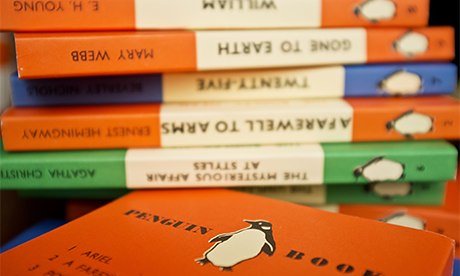The Shorouk-Penguin Project: Translating Literary Classics into Arabic
The vision of the Shorouk-Penguin project is to improve intercultural communication between European and Arabic lovers of literature, not only by translating new English language titles into Arabic and vice-versa, but by universalising titles written by renowned authors. This latter aspect recognises that such titles have contributed to the development of novels, short stories, plays and poetry over the last three centuries. The project also aims to support Penguin’s mission as outlined by its founder Sir Allen Lane, who believed he could create cheap, well-designed quality books for the mass market.
International Library in Arabic
The Shorouk-Penguin project is the first-of-its-kind initiative in the region and gives Arab readers the chance to read some of the all-time international literary masterpieces in Arabic. With Penguin Group having previously embarked on similar ventures in China, South Korea and Brazil, the new project in the Arab region aims to provide Arab readers with a world literature library that has the most important titles, many of which have been the subject of film and theatre adaptations.
The Shorouk-Penguin project is important because it fulfils the twin objectives of translating English language classics into Arabic and offering Arabic classics to the rest of the world, thereby promoting the authors of Arabic works to a global audience. The project goes beyond that of being a mere financial venture to one that promotes creativity and the dissemination of knowledge. Ultimately, the initiative seeks to provide high quality books – both in printed and digital editions – for global audiences at reasonable prices.
The Shorouk-Penguin project opens a new window for Arab readers on Penguin Classics, an imprint that is already extremely popular elsewhere across the world. While many books in the series are already familiar to Arab readers, it is hard to find editions that stand out for the quality of their translations.
Translated Titles
The Shorouk-Penguin project has translated 12 titles into Arabic in new editions, including ‘The Prince’ by Niccolò Machiavelli, ‘Hamlet’ and ‘The Taming of the Shrew’ by William Shakespeare, ‘The Lady with the Dog and other Stories’ by Anton Chekhov, ‘The Strange Case of Dr Jekyll and Mr Hyde’ by Robert Louis Stevenson, ‘Tortilla Flat’ by John Steinbeck, ‘Pygmalion’ by George Bernard Shaw, ‘Les Femmes Savantes’ by Molière, ‘Hadji Murat’ by Leo Tolstoy, ‘Andromaque’ by Racine, ‘The Adventures of Tom Sawyer’ by Mark Twain and ‘Don Quixote’ by Cervantes. The Shorouk-Penguin joint venture represents a milestone in Arabic publishing because Penguin is acknowledged as one of the world’s leading publishers with a portfolio of 4,000 titles brought out every year. Penguin started publishing its classics in 1946 through its Penguin Classics imprint, which has to date reached more than 1,200 titles.
Communication… a Cultural Necessity
The importance of such initiatives as the Shorouk-Penguin project is underlined by tracing the development of literature over the ages. History testifies that cultural aesthetics are accumulated by human experiences at various levels. Writing and authorship is something that can’t be undertaken in isolation and without reference – even at a subconscious level – to what has gone before and what is deeply rooted in this field.
That is why the revival of classics is so important for the development of literature and for the opening of new windows to update it. Most of the modern contemporary creative experiments and literary movements were a development or a reaction to the classical vision and followed on from a different understanding and interpretation of it.
Every translation project is an important step towards building bridges of communication between the Arab culture and other cultures. They affect the Arab cultural project at different levels, some of which are connected to the publishing industry and market, some to the presence of Arab writers through enriching their experience, and some to readers by raising their levels of awareness.
Arab publishers need – today more than ever – to bridge cultural gaps. The global publishing market has seen significant changes and developments, with investments estimated at around USD 20 billion. Given the increasing number of publishing houses in the Arab world, the Arab publishing industry should enjoy its share of the market.







